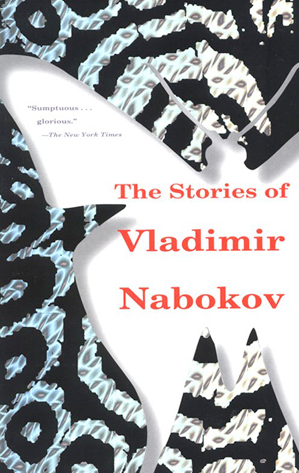 Charles Haddox lives in El Paso, Texas, on the U.S.-Mexico border, and has family roots in both countries. His work has appeared in over forty journals including Chicago Quarterly Review, The Sierra Nevada Review, Folio, and Concho River Review.[/author_info] [/author]
Charles Haddox lives in El Paso, Texas, on the U.S.-Mexico border, and has family roots in both countries. His work has appeared in over forty journals including Chicago Quarterly Review, The Sierra Nevada Review, Folio, and Concho River Review.[/author_info] [/author]
Although I have been writing practically my whole life in one capacity or another, I only became interested in writing fiction and creative nonfiction about a decade-and-a-half ago. Several books that I was reading at the time inspired and influenced me, though they were not necessarily the ones that others might have chosen for that purpose. One of them was the novel Titus Alone.
Those who know me often find my choice of a favorite book by a author to be eccentric, even perverse. (My favorite Pynchon, for example, is Vineland.) It never ceases to shock fans of Mervyn Peake’s famous Gormenghast Trilogy that my favorite book in the series was the final one, Titus Alone, which doesn’t even take place at Gormenghast. When the BBC produced a lavish and critically-acclaimed television version of Gormenghast in 2000, it only included the first two books of the trilogy. And the well-known writer and critic Lin Carter felt that he was speaking for most Gormenghast fans when he stated in his book, Imaginary Worlds, that he wished Titus Alone had never been published. The first two books of the Gormenghast Trilogy, Titus Groan and Gormenghast, are slow, dense, and carefully constructed, while Titus Alone seems to be a constant reaching, a constant going for broke—as if the author, already faced with the signs of a terrible brain disease that would eventually kill him, was truly a man with nothing to lose. For me, that gave it a quality of immediacy and a depth of emotion which the first two books couldn’t match. The irony and sense of detachment coloring Peake’s rich and layered language in the first two books was absent, replaced by the sheer horror of a world filled with surveillance drones, cloned secret police, and constant fear.
The book did have its structural weaknesses, but these had to be weighed against its sheer power. Titus seemed strangely detached throughout the story, and his fate was less interesting than that of the supporting characters, who had to live and die in a world Titus was only passing through. As was often the case of books with a weak protagonist, the story became more a series of set pieces than a single unified narrative.
But it was through these very episodes that the book completely captured my imagination: the fight to the death between Titus and the monstrous ex-Gulag guard, Veil, in the sewers of Under-River; the encounter with the man who charged people to watch the sunset—an extreme example of commercialization of the natural world; and the noble Muzzlehatch’s ultimate defiance of the totalitarian state in which he lived. The world of Titus Alone was one of singular inequality, injustice, and repression, and it left even the most honorable of its characters unable to experience any emotions except anger, guilt, and regret. There was Slingshott, the beggar, obsessed by the memory of the wife he left to die at the edge of an icecap during an escape from a concentration camp; Juno, who loved men who were too damned to love her back; and Muzzlehatch, who acted as sometime mentor and protector to Titus, but also needed to stay aloof and detached in order to remain a free man and an enemy of the state, though ultimately, his love for his animals—his “zoo,”—which embodied for him all the purity, the pathos, and the goodness left in the world, ultimately betrayed him.
For me, the success of Titus Alone came from its ability to immerse the reader into a credible world of both horror and human nobility. It was a frightful and squalid world, but Peake was not constructing a simple moral fable like so much of the dystopian literature written today. He was willing to hope that decency would ultimately triumph over even the most nightmarish social order, but he had already experienced enough of the twentieth century, with its terrible weapons and concentration camps, to be wary of easy victories with clear-cut winners and losers.







